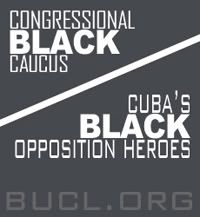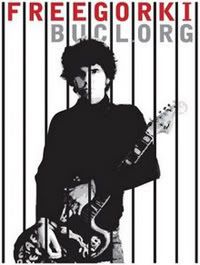skip to main |
skip to sidebar

Become a Campaign Sponsor
Are you a blogger or webmaster looking for a way to do something about Cuban liberty instead of just talking about it? Then Bloggers United for Cuban Liberty is for you. For information about upcoming campaigns and how you can become a campaign sponsor Email us.
3 Ways to get involved
1. Email us to receive a full campaign proposal so that you can evaluate the sponsorship opportunity. If you like what you see, you can donate the $50 sponsor fee with Paypal by clicking this button.
2. You can also donate an amount less than the sponsor fee by clicking the button below.
3. You can simply blog about our campaign. Feel free to take and post campaign images. If you don't have a blog then email your friends about it. The key is to spread the word.
2. You can also donate an amount less than the sponsor fee by clicking the button below.
3. You can simply blog about our campaign. Feel free to take and post campaign images. If you don't have a blog then email your friends about it. The key is to spread the word.
Contact BUCL
Via Email: Click Here















1 comment:
Henry, a major part of the exploitation is the construction of hotels and other businesses on land confiscated by the Castro regime.
The US congress has addressed the issue of confiscated property belonging to US nationals and to a certain extent Cuban nationals.
Title III. "Protection of Property Rights of United States Nationals"
The Helms-Burton law's centerpiece is Title III, which gives U.S. nationals and corporations the right to sue foreign companies which "traffic" in property expropriated from the U.S. entity after the 1959 Cuban Revolution. Trafficking, a term usually reserved for the narcotics trade, refers to involvement in a venture that uses property confiscated by the Cuban government.
Helms-Burton expands the right to sue over confiscated property to individuals and corporations who were not U.S. nationals at the time of the confiscation, but rather who later became U.S. nationals. Cuban exiles with property valued at more than $50,000 at the time of confiscation could collect, as could non-U.S. corporations, such as Bacardi, which later became introduced U.S. operations.
So according to US law Cuban Americans can sue foreign companies eg Spanish companies. But this would be difficult.
To raise awareness of this issue is there any way you could develop a data base of confiscated property, showing the names of property owners, description of property, date of seizure and details of illegal use that the land is being used for and even better the names of the Spanish companies developing the property.
Naming names backed up with facts, the campaign will take off on a different trajectory.
Many of the owners of confiscated property are Cuban exiles living in Spain.
The Spanish foreign ministry repeatedly refuses to discuss the matter with the exiles as in the case of Cuban dissidents.
Post a Comment